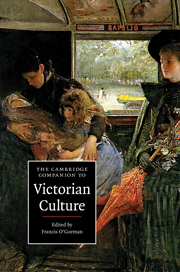1 - Introduction
Published online by Cambridge University Press: 28 July 2010
Summary
The facts of the past have a habit of confounding intellectual speculation. It is aswell never to forget that surprise may wait around a corner to mock the best endeavours, the most serious and learned efforts to analyse history. Why might the Prime Minister William Gladstone have demurred about recommending to Queen Victoria that Alfred Tennyson, her poet laureate, be offered a baronetcy? Perhaps, in 1883, Gladstone might have wondered if literature was really a dignified enough career - if 'career' it was - to deserve such an honour. Could writing poetry really qualify one to speak in the House of Lords? Perhaps he felt that Tennyson's political poems were no ample recommendation for actual involvement in politics. Perhaps the poet's famous religious uncertainty might be too controversial for the Bishops in the upper chamber. None is a poor suggestion. But Hallam Tennyson records in his Memoir (1897) of his father the real reason. 'The only difficulty in Gladstone's mind', Hallam remembered, 'was that my father might insist on wearing his wide-awake in the House of Lords.' It is a ludicrous turn, a confounding of serious explanations by the comical practicality of a hat. That hat was a difficulty, no doubt. But Hallam's account is awkward all the same, for it is not comfortable to find such trivialities in the heart of sober matters.
- Type
- Chapter
- Information
- The Cambridge Companion to Victorian Culture , pp. 1 - 11Publisher: Cambridge University PressPrint publication year: 2010



